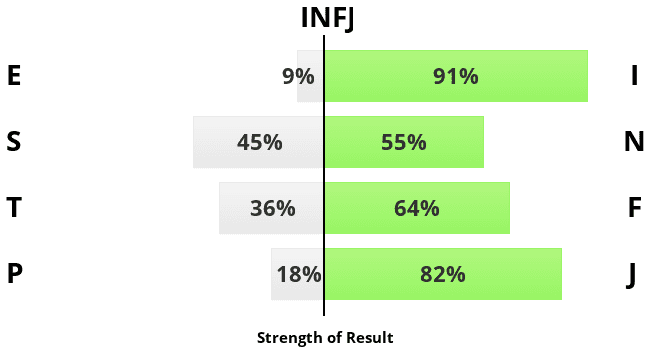“Will you still need me, will you still feed me, when I’m sixty-four?” Paul McCartney, The Beatles
Today is my sixty-fourth birthday! I ask my family, friends, followers, and readers to indulge me as I meander through a few matters on the way to trying to identify some things that I think I’ve learned in almost three-and-a-half decades.
A few weeks ago, in my “Apocalypse” colloquium, my teaching partner and I gave the students an assignment called the “Civilization Archive”:
For your required intellectual notebook entry next week, imagine that you are living in a world that is facing total human extinction in a matter of months. You have been chosen to help leave a record of human civilization in the mountain-top vault. Space is limited, so choose wisely! What TEN items would you include, and WHY?
More detailed instructions followed, but you get the idea. After they submitted the assignment online, we spent a two-hour seminar discussing their choices.
Several students included music of some sort as one of their ten items for the archive; many of them wanted to leave a thumb drive with thousands of musical examples of all genres. After some discussion, I went old school on them and asked “What if you were limited to selecting the complete works of one artist, band, or composer? What would you select?” It is, of course, entirely a subjective matter for which there is no “right” answer (although I would argue that there are many, many wrong answers). Before long, my students wanted to know what I would choose, and I was on the spot.
I am classically trained on the piano and classical music has been a central part of my life ever since I can remember. Mozart was my childhood hero (along with Carl Yastrzemski). So, whose music to use for the vault? Bach? Mozart? Beethoven? Chopin? Debussy? Rachmaninoff? As my students awaited my response, it all of a sudden came to me with a clarity that I seldom experience. The Beatles. Of course. It’s a no-brainer.
I think the reason The Beatles are my choice for the civilization archive has a lot to do with a YouTube video I had watched just a week or so earlier. While on the exercise bike at the gym one morning, I read an article about James Corden, the host of The Late Late Show (which I never watch because I can’t stay awake that late). One of Corden’s recurring segments is “Carpool Karaoke,” in which Corden invites famous musical guests to sing along to their tunes as they ride in a car driven by Corden. The article included an extensive description of the most watched “Carpool Karaoke” where Corden and Paul McCartney drive around Liverpool, visiting various places from Sir Paul’s youth. I watched it later that day on YouTube—it is twenty minutes of pure joy. If you have not seen it (it has over fifty million views), stop right now and watch it. You’ll thank me later.
You’re welcome. So many great moments in the video, including McCartney’s story about the inspiration for “Let It Be” (my favorite Beatles tune) that brings Corden to tears, and an impromptu concert at a pub that you will have to sing along to. In the middle, as Corden and Sir Paul are visiting the flat where MeCartney lived as a teenager, he sits at an upright piano and sings “When I’m Sixty-Four” (at 12:00 on the video). Happy birthday to me!
Our culture tends to assume that with increased years comes increased wisdom, but as a Chinese philosopher once pointed out, some people just get older with the passage of time, and the wisdom thing never happens. With that in mind, here are a few things that, on my sixty-fourth birthday, I think I know to be true.
1. Some things never change: A Facebook friend reported the results of her online Myers-Briggs personality test not long ago, which prompted me to spend several minutes with forty-five questions to see if I have changed over time. I haven’t.
You are an INFJ! Sensitive, empathic, and insightful, you care deeply about people, wanting to accommodate them on the one hand, and having strong visions that you desperately want to turn into reality on the other . . . Others are likely to describe you as tolerant, courteous, and appreciative, but also a bit remote and dreamy . . .
Blah, blah, blah. In truth, “a bit remote and dreamy” is not how others are likely to describe me negatively—“stuck up, superior, stand-offish, and aloof” sounds more like it, all of which are generated largely by my 91% I (introversion). Such is the life of an INFJ. I have taken the Myers-Briggs test at least a half dozen times in the past four decades, always with the same results. So be it; as Jeanne (an ENFP) says, “it is what it is.” Deal with it. On my tombstone will be carved “He was a hardcore INFJ. We tried to deal with it.”
2. I know more than I can put into words: For someone who teaches philosophy for a living, this one has taken a while to inhabit and embrace. Words, after all, are the tools of the philosopher’s trade, tools we use to construct logical arguments, to refute other arguments that we don’t like, and to reflect our fundamentally rational commitments. The older I get, however, the more I resonate with Iris Murdoch’s observation that
To be a human being is to know more than one can prove, to conceive of a reality which goes “beyond the facts” in familiar and natural ways.
What I know, but cannot prove, often is what is most important to me, important not because I can make a rational case for it but because it lies deeper than reason at the core of who I am. This tends to be very frustrating to people who comment on my blog, academic colleagues, and students who expect me to embody the stereotype of the rational, intellect-worshiping philosopher. In response I frequently quote a favorite passage from Shakespeare, Hamlet’s response to his friend Horatio’s refusal to believe that Hamlet has seen the ghost of his dead father.
There are more things in heaven and earth, Horatio, than are dreamed of in your philosophy.
3. I know less than I think I do: I’ve been aware of this for a long time, but I thought I’d put it out there because it, as the previous truth, runs counter to stereotype. We all know more than we can put into words and know less than we think we do—but academics, people with degrees, and people who are confident about themselves are not supposed to admit it. Fuck that, I say. Becoming comfortable in one’s own skin, which is hopefully something that becomes more and more possible as one gets older, involves admitting one’s finitude, mortality, imperfections, lack of certainty about just about everything—and loving it.
4. Attitude matters: A couple of years ago, Jeanne took me to see “Beautiful: The Carole King Musical” at our downtown performing arts center. It was wonderful; the hundreds of people in attendance mostly looked like Jeanne and me—aging hippie refugees from the sixties. Carole King’s “Tapestry” was one of the first albums I ever purchased; her music was a cherished part of the soundtrack of my youth.
The show ends with Carole King sitting at a grand piano during a 1971 Carnegie Hall concert, her first performance in front of a live audience. She sings “Beautiful,” which is one of my King favorites.
You’ve got to get up every morning with a smile in your face
And show the world all the love in your heart
Then people gonna treat you better, you’re gonna find, yes you will
That you’re beautiful, as you feel
As the Stoics tell us, although we cannot control what the world sends us, we can control how we will process and respond to it. How I approach the world is a choice, and I choose—when I have my wits about me sufficiently to remember—life and love. I choose not to be afraid. I embrace Iris Murdoch’s definition of freedom:
To be free is something like this: to exist sanely without fear and to perceive what is real.
As I’ve learned over the past several years to embrace an evolving faith rather than to struggle against it, I’ve found it more possible to find the divine in the ordinary, in the pleasures of daily life in the classroom, with Jeanne, with our remaining dachshund Winnie, screaming at the top of my lungs with 13,000-plus fans at a basketball game. And I realize that I’m finding the divine more and more often because I’ve become more and more comfortable as an incarnated being. The central claim of my faith is that the primary way the divine gets into the world is—despite our mistakes, flaws, imperfections, and downright evil—in human form. The older I get, the more I accept that when it comes to getting the divine into the world, I’m it. And so are you. It goes with the territory.
So here’s what I want from you for my birthday. I want you to embrace your humanity. Fully, without reservation. Because in doing that, you are embracing something much bigger than yourself.













